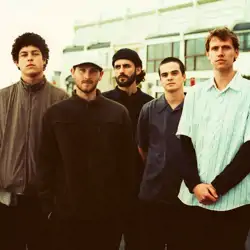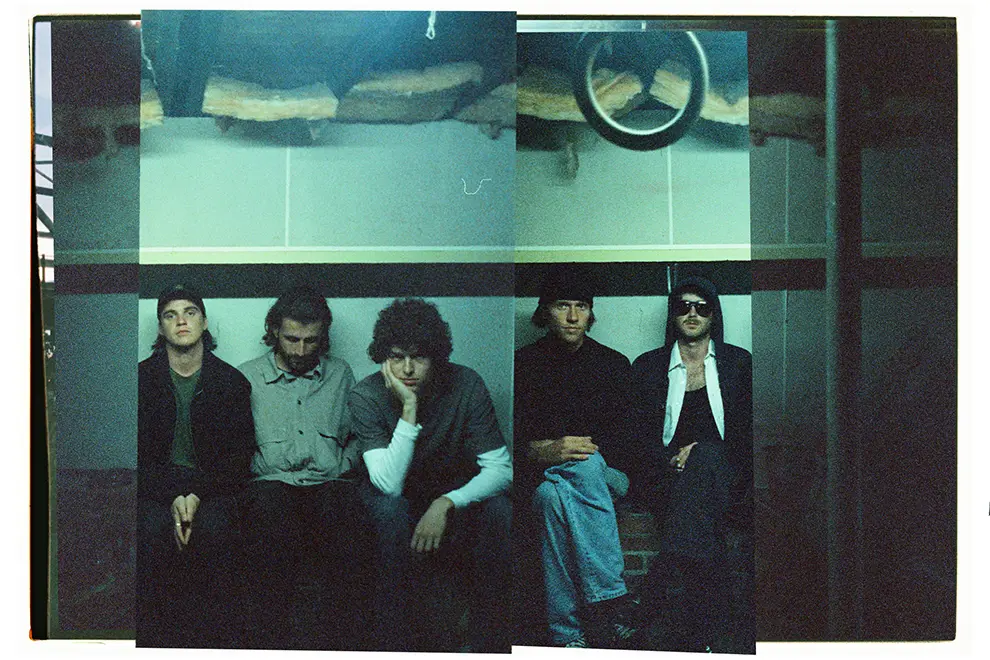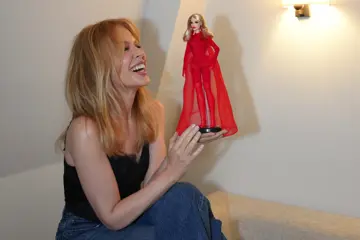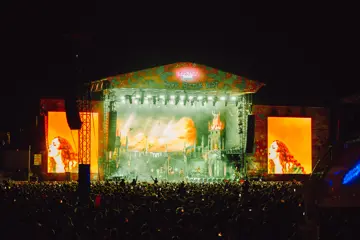 Dust
Dustdust’s music is full-bodied. The up-and-coming Newcastle-born-and-bred post punk outfit creates tracks that are headily atmospheric, saxophone-rife, teeming with life.
Sounds clash and give way to each other. Their recent single Drawbacks is at once a head-jolting, feet-tapping banger, and a moody, contemplative ballad. The lyrics are fluid, satisfyingly colliding into each other: “To shake, to glide, to be inclined. I draw back.”
It is not hard to see in dust the glorious potential of what Australian indie music could be. And it looks like they are shaping up for big things.
Their inventive, industrially shaped rock has landed them appearances at Laneway, Pitchfork Music Festival, London Calling, and has seen them supporting the likes of such legends as Slowdive, Interpol, Bloc Party, across tours of Australia, the United Kingdom, and the United States.
They recently signed to Ground Control Touring for representation for US bookings, and they have been gearing up to release their debut album Sky Is Falling, which arrives today (October 10th) via dust/Virgin Music Group.
Speaking over Zoom, drummer Kye Cherry describes the whirlwind of emotions that comes with encroaching success. “[We’re] feeling excited for the record to come out, and excited for those themes and feelings that we were putting out there when we were conceptualising it,” he says.
Don't miss a beat with our FREE daily newsletter
“The unknown, the big pressure and the big opportunity that we've been blessed with – excited to get that all rolling. It’s a little bit overwhelming at times, but also really affirming in what we want to be doing. And we’ve all been able to share the load and not have it land on one person, and be in control ourselves.”
The band has described Sky Is Falling as their attempt to “make sense of it all.” Given that the band came of age musically during the height of the COVID-19 pandemic – and are continuing to make music during what can surely be described as a politically divisive time – overwhelming uncertainty would be a totally understandable emotion to be grappling with.
“I think it’s helped us make sense of what our position in the world – and in the uncertain climate of everything – is,” Cherry notes. “And having a body of work that we were able to work towards, and hopefully see some growth out of and some purpose come out of, helps.
“I think more in the interim of, like, returning from touring and from an exciting few years... In this kind of lull, everything’s feeling a bit uncertain.”
They are all still “digesting the state of everything at the moment.” Cherry adds, “But it feels good and affirming to have a direction and a body of work that we feel represents us as musicians and as individuals. I think it was really cathartic for the guys to have a long period of time to write the lyrics and get to put more intention behind what they’re getting at.
“I think it’s helped make sense of our positions, but everything still feels really uncertain. Like, is there space for this?”
On that note, does he believe that it is important to create art during times of uncertainty?
“I think it is and it isn’t,” he offers. “It is in an escapism sense, and in really fulfilling that human part of us that wants to make art and music, lasting music.
“I think we’ve tried to push slightly against short form gratification and we’ve really wanted to stick to the album format and have a body of work that transcends contemporary society but can also kind of represent it.”
Cherry delves into the influences and backdrops that shaped dust’s unique, alternative take on post-punk.
“Our introduction to this style of music was through the internet and through international acts. But our musical history and foundation is deeply in Australian music,” he says. “Through times of isolation and travelling and that, being able to explore international sounds and process the state of things outside of Australia helped shape the music – but it’s always going to sound like our roots.
“We’re still living and writing close to where we grew up, in similar spots to where we wrote our first songs. So it still feels very us.”
There is a certain underdog mentality amongst Australian artists that comes from being situated in a country that exists – to a certain extent – in isolation. Often, Australian artists have a fraught relationship with their own art, with their own identity, and can be overcome by a feeling of “cultural cringe.”
“That definitely sparks different thoughts for different people," Cherry says. “People have preconceived ideas about Australian music. And I think in a time where a lot of music that’s being put out in Australia is all in a similar box or a similar vein, we’re kind of excited to be out of that.
“I think, to speak for myself, I’m proud of the Australian sound of it. We’ve stayed true to that and haven’t tried to sound like we’re from somewhere else, but we haven’t tried to align or pull influence to fit a certain mold.”
He lists the up-and-coming Australian artists that give him hope for the burgeoning musical scene here.
“We really have found a community with bands from Adelaide, like Twine and The Empty Threats,” he offers. “So much love for that crew. And the Belair Lip Bombs, Radio Free Alice. More specifically in Newcastle, there’s a collective called New Brain Communications.
“There’s a community, a bunch of pockets, that are building the scene up and putting shows on and trying to make some lasting impact... It feels like there’s a big sense of everyone helping everyone. It doesn’t feel competitive.”
Cherry claims this sense of community – and these little pockets of art – should be enshrined and supported.
“I think shining a light to local scenes and communities of bands all across Australia, and not just a few token bands from each pocket needs to happen,” he says. “Because in Australia – or around where we live – there’s a really strong community.
“A lot of bands share members or rehearsal spaces and bookings and play shows together all the time. And oftentimes you’ll see, like, a handful of bands get to go interstate or international. But I think sharing the individual sound of each city and each community.
“We need more from where those acts are from, and what communities nurture those sounds, and what communities encourage that style of music,” he adds.
Cherry discusses and compares the merits of songwriting and recording versus performing live.
“They both provide a big cathartic experience. The recording is always such a special time for us, when we finally put all of our ideas down for good and we can’t change them.”
He pauses, then adds, “I think sharing the music with people live is really important. It’s so impactful to be able to share the way that you’re feeling in that exact moment with the crowd and with people onstage, but also to be able to be slow and deliberate in the songwriting process.”
Cherry comes across as exceedingly thoughtful and contemplative. “Now that we’ve been given direction as musicians, being able to maybe take a bit of a leap into this world, we’ve taken a lot of responsibility to try to understand where everything comes from.” It’s a quality that shines in the band’s music.
Hopefully, beyond this first album, and for several albums to come, they will continue to try to make sense of it all.
dust’s Sky Is Falling is out now.
This piece of content has been assisted by the Australian Government through Music Australia and Creative Australia, its arts funding and advisory body

















